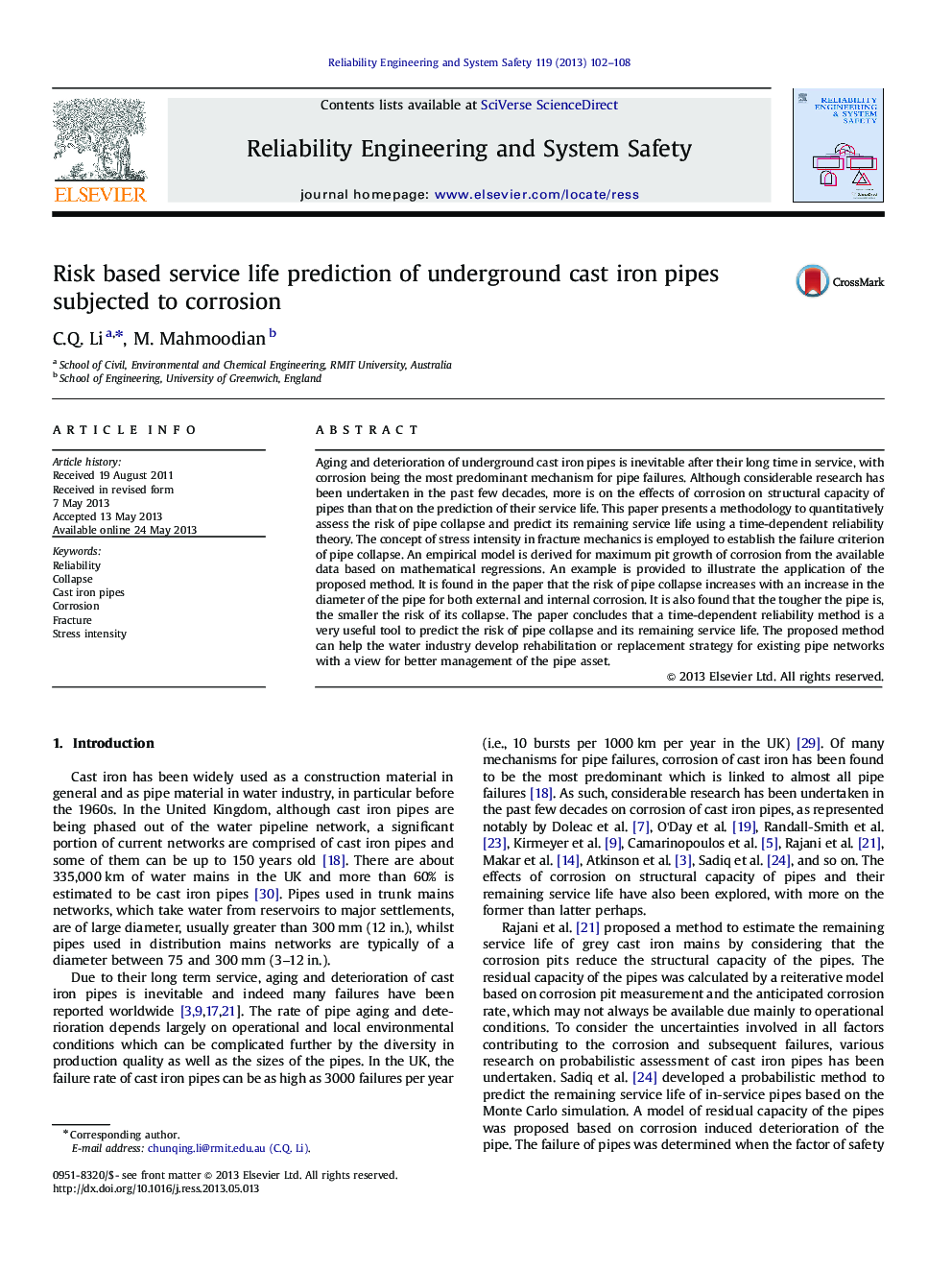| Article ID | Journal | Published Year | Pages | File Type |
|---|---|---|---|---|
| 805648 | Reliability Engineering & System Safety | 2013 | 7 Pages |
Aging and deterioration of underground cast iron pipes is inevitable after their long time in service, with corrosion being the most predominant mechanism for pipe failures. Although considerable research has been undertaken in the past few decades, more is on the effects of corrosion on structural capacity of pipes than that on the prediction of their service life. This paper presents a methodology to quantitatively assess the risk of pipe collapse and predict its remaining service life using a time-dependent reliability theory. The concept of stress intensity in fracture mechanics is employed to establish the failure criterion of pipe collapse. An empirical model is derived for maximum pit growth of corrosion from the available data based on mathematical regressions. An example is provided to illustrate the application of the proposed method. It is found in the paper that the risk of pipe collapse increases with an increase in the diameter of the pipe for both external and internal corrosion. It is also found that the tougher the pipe is, the smaller the risk of its collapse. The paper concludes that a time-dependent reliability method is a very useful tool to predict the risk of pipe collapse and its remaining service life. The proposed method can help the water industry develop rehabilitation or replacement strategy for existing pipe networks with a view for better management of the pipe asset.
